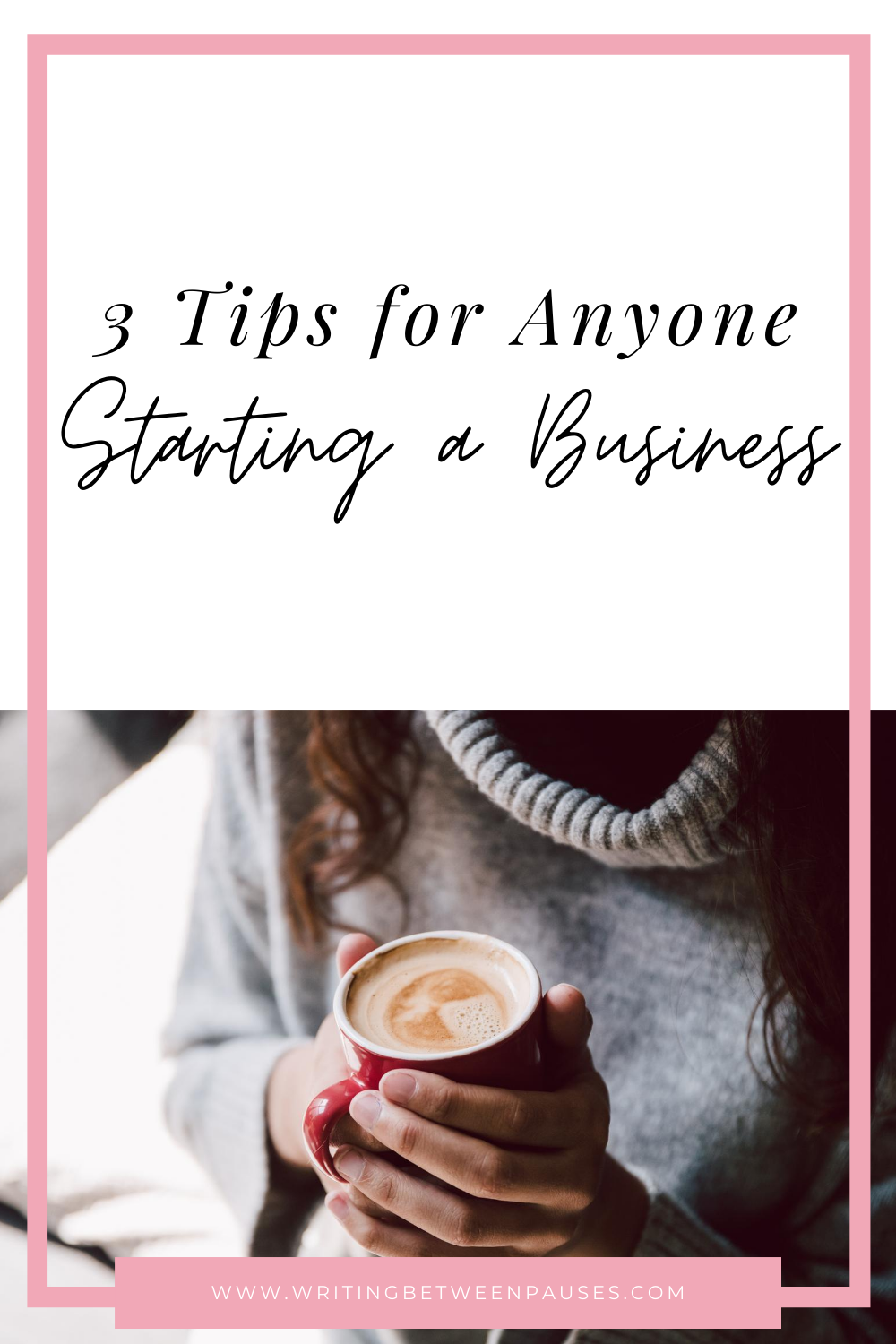When I started freelancing over a year ago, I made the decision not based necessarily on desire (although I’d been thinking of going full time freelance for a while), but because it was the only option available to me. I’ve written about falling into freelancing before, so I’ll save you all the details. But one big thing I didn’t realize when I started freelancing was that I was essentially starting a new business, with myself as the CEO.
I didn’t really consider it a business—it was just me! I just needed to work to keep paying my mortgage. I also wasn’t selling anything—just providing services based on my years of agency experience.
The truth is being a freelancer is starting a business. Whether our work resembles a business owner that sells a product isn’t necessarily the point… What is the point is that freelancing, selling products, blogging and making money are all businesses. And if you started one, you’re a business owner.
Here are 3 tips if you want to start a business, are a freelancer floundering with what you need to know about running a business, or are just curious about what running an independent business is like.
1. Speak to Accountant Now (and Create Your Team)
The sooner you talk to an accountant, the better. Why? Because paying taxes as an individual proprietor is confusing at best. If you are starting a business, there is a lot of info you’ll need about collecting and paying taxes, registering your business, and more. An accountant won’t have all the answers, but they will be able to help you find those answers.
This leads me to sort of a second part of this point: create your team for your business.
Even if you don’t have employees quite yet, your team will still consist of people who help you run your business. This might include:
Your mentors: a group of people you can ask your dumbest questions (like, am I stuck up shit creek without a paddle if I forgot to mail my individual tax estimates??) and get good advice back
Your accountant
Your bookkeeper (or your bookkeeping software)
Your lawyer (if you need one—and you never know if you will need one)
Once you have a few go to people that you can always shoot an email with random questions, you’ll be good to go.
2. Don’t Be Afraid to Try Something New
When I first started freelancing, I had a lot of ideas about what I specifically wanted to do. I wanted to get back into strictly copywriting; I was tired of working in social media.
It should not surprise you that I haven’t landed a single copywriting-only client.
I do a lot of strategy. I do a lot of social media writing and strategizing. I also added a relatively new service for me: VA services. (VA is a virtual assistant.)
A lot of my clients already have either a marketing person or an agency. However, their agency charges too much for them to implement the materials—like scheduling emails or blog posts to go live. So, I take on a lot of the busy work, like scheduling, tracking analytics, and more. This helps small businesses offset the costs of marketing while still getting high level work.
If you’re starting a business, you might find yourself falling into work that you never expected. Maybe you make a product for fun that ends up taking off. (I actually always tell clients about American Eagle’s American Beagle April Fools joke from several years ago—that was so popular that they ended up making a dog line of clothes a real thing!) Don’t be afraid to switch up your services or products based on what ends up selling.
3. Protect Your Time (and Keep Your Boundaries Firm)
I’m big on setting boundaries. And especially when you run your own business, you can very quickly erode your own boundaries. Trust me, I know from experience.
The first 6 months I worked freelance, I didn’t establish boundaries. I answered emails when I got them; I answered texts when I got them. Sometimes, I didn’t raise my head from work for hours. Thankfully, Forrest was in school for that time. But once the pandemic hit, I knew I needed to get my shit together.
I couldn’t be both a mother and a freelancer and not have boundaries.
If you’re a business owner, I recommend my guide to setting boundaries. However, as a short summary, here are 3 boundaries that you need to make sure you have:
Set your work hours and work days. On this note: Communicate with your team that you understand their boundaries and want to respect them. Make sure you note your team’s working hours and days.
Create a space that is just for your business. An office, a corner, whatever works.
Write an FAQ in advance to provide to potential clients and customers so you don’t end up answering the same questions over and over.




